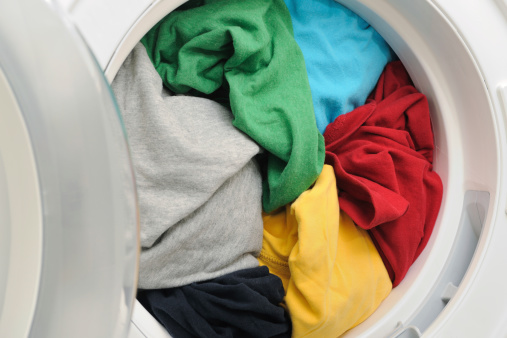President Trump has touted the tariffs at the center of his trade policy as making “billions and billions of dollars” for the U.S. Treasury while creating thousands of American jobs.
It didn’t work out that way.
A new study shows that the tariffs on Chinese-made washing machines came at a heavy cost to U.S. consumers, and generated little revenue for the government.
While they did help create 1,800 jobs, each of those jobs cost consumers $815,000, researchers at the University of Chicago and the Federal Reserve found.
The tariffs caused a nearly 12 percent jump in the prices of imported washers — but companies like Samsung and LG also raised the prices of clothes dryers, which are not subject to tariffs.
What’s more, U.S. manufacturers took advantage of the situation and raised washer and dryer prices, too.
“All told, the research shows, U.S. consumers are spending an additional $1.5 billion a year on washers and dryers as a result of the tariffs. That’s an extra $86 for each washing machine and $92 for each dryer, the authors estimate,” reports the Washington Post.
“Of all that extra cost, however, the tariffs resulted in a relatively small amounts of revenue for the government, just $82 million a year,” says The Hill, the newspaper that covers Congress. “The rest benefited the U.S. companies selling washers and dryers at higher prices.”
The Hill notes that the washing machine tariffs “were among the earliest and most modest tariffs Trump imposed in his aggressive trade policies.” Since then, he ordered hundreds of billions of dollars in tariffs on steel and aluminum, and other imports from China.
“Those tariffs resulted in retaliatory tariffs from the European Union, China and other close trade partners on U.S. exports,” The Hill says.
In the end, the report concludes that “U.S. consumers shouldered 125 to 225 percent of the costs of the washing-machine tariffs. And the duty was mostly a dud on the job-creation front,” says the Post.
